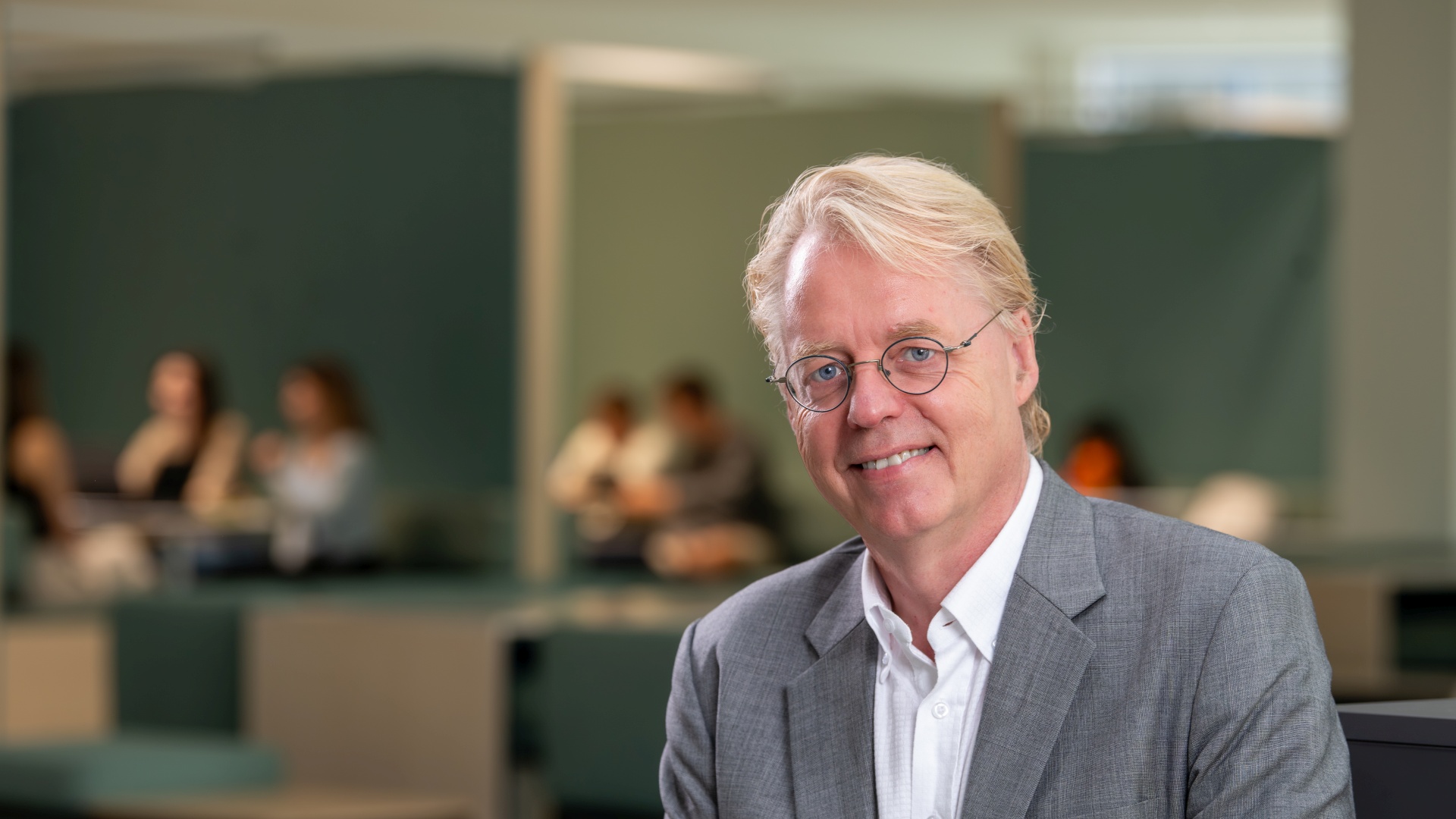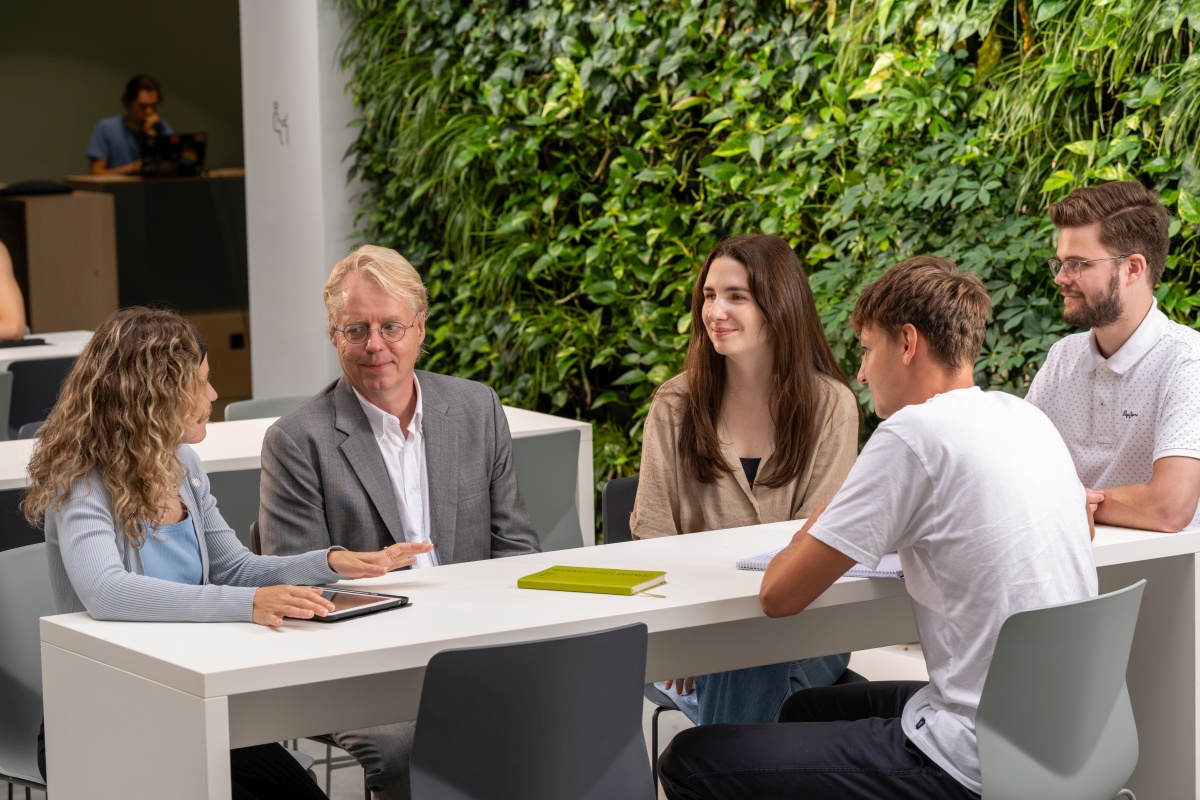„Education Is an Essential Part of Our Contract with Society“
Since the beginning of this month, Jan S. Hesthaven has been at the helm of KIT as the new president. In an interview with clicKIT, he emphasizes that education is a top priority of his and he explains why this is the case and how he sees the future of studying at KIT.
Now that you are at KIT, what are your plans for the first 100 days?
Most important for me is to get to know the people of KIT, that is to meet with professors, students and staff. Listening to what they have to say is the best way for me to learn more about KIT, the many opportunities and perhaps some challenges. While I am open to seek changes for the benefit of the institution, I am well aware that many elements of KIT work very well and should certainly not be changed dramatically. Finding this balance requires that I have a deeper understanding of KIT. At the same time, I would like to launch a discussion with the community of where we are as an institution and where we would like to be in five or ten years from now.
Surely you already have some general ideas about what the future might look like?
I have some general topics I would like to discuss with the KIT community. As an example: We've been teaching in large groups pretty much unchanged since the industrialization in which time to graduation is a central metric. As a result, students graduate with very different skill sets. Artificial intelligence offers the opportunity to personalize education for all students by introducing a personal tutor. This exclusive one-on-one interaction with AI allows us to provide much more personalized support to students while improving the quality of teaching and therefore the quality of graduates. This is a substantial change, and it is not happening in 100 years, but within the next decade. As a community, we need to start thinking about how we are going to respond to such opportunities and what the downsides are.
Diversity is likewise important to me: Overall, KIT needs to open up internationally, and attract talent from all over the world and ensure they feel at home at KIT. In terms of diversity, however, socio-economic diversity needs to be taken into account as well. We cannot afford to lose young talented and committed people, who decide against studies at a university because they are unsure or unable to navigate in such an environment.
And where do you see KIT in ten years in relation to other universities and research institutions in Germany and worldwide?
I strongly believe in collaboration, more so than in competition. We need to identify trusted partners, both in Germany and internationally, with whom we can collaborate in our core missions – education, research, innovation and societal engagement. Institutions like KIT cannot master everything and to have a substantial impact and to provide broad international leadership, we must collaborate with partners whose strengths are complementary to ours. I would like to position KIT as one of those places to which other institution turn when looking for a partner in an emerging and important new activity, be it in education or research.
On another occasion, you said that education reflects our contract with society. What do you think about teaching at the KIT, in particular with regard to its special connection to large-scale research? What do you think about research-oriented education?
As a university, we can do two things. First of all, we educate people for our society and offer opportunities for social mobility. These are essential components of our contract with society, our social mission: We receive very substantial resources to achieve this through education and without maintaining the quality and the relevance of our graduates we may lose society's trust which endangers our very existence.
Secondly, a university can do something that a research institute cannot. It can undertake very high-risk research, and even if it fails, it still succeeds in its educational mission, as students are educated in the process. In other words, a university has the ability to hedge very high-risk research with education. This is different from the situation at a research institute or in industrial research. The educational mission is a unique feature that allows the institution to do things that other elements of the Helmholtz Association may have a harder time justifying. At KIT, these two elements are closely connected and this is the unique strength, to the mutual benefit of education and research. So, I do not really recognize a strong distinction between the importance of research and education – it is the combination that is the strength.
What opportunities do you see for students at KIT that they might not find elsewhere?
KIT is a university that is connected to a large scale national laboratory which is part of the Helmholtz Association. If I look at this visually, there's a circle of 18 Helmholtz Centers with a satellite attached to one of them - the university part of KIT. I would like to invert this picture and put the university in the center, and strive to connect it to all 18 centers.
This would allow the university to conduct its "high-risk, high-payoff" research that could contribute to many of the 18 research centers rather than just one. Furthermore, this would offer students the unique opportunity to complete part of their education not only at Campus North, but at one of the Helmholtz Centers throughout Germany. This is really a unique position and I would like to establish a model in which KIT is less of an attachment to the Helmholtz Centers, but rather placed in its center, ensuring that KIT really is "The Research University in the Helmholtz Association". We need to make optimal use of this unique position and the unique resources across the Helmholtz Association to collaborate more closely across disciplines in education, research and innovation.
Would you like to conclude with a personal advice for the students at KIT?
I would say, be open to opportunities when they present themselves. When I was a student in my third year, I was asked if I would like to spend 6 months in the UK to work in a European laboratory for fusion outside of Oxford. I had never studied outside of Denmark before, but I took the chance. It was life-changing for me and I realized that research was for me. I came back as a much better student because I had a goal, a passion, now. This has continued throughout my academic career, where I have relocated internationally several times, changing and enriching my life every time. This is probably the best advice I can give: Be open to opportunities when they present themselves and don't overthink it. This is one of the reasons I chose to move to KIT - the opportunity presented itself and it's an exciting one.
Interview: Leonie Kroll, Margarete Lehné
October 10, 2024


